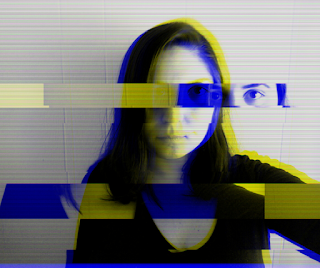On Blindness
I believe in a God of love. I believe in the Catholic Church. But I also believe that Jesus is bigger than any box we try to put Him in. I believe when He makes His Second Coming, He will challenge the beliefs of the devout most of all, who have such a particular idea of who He is.
This article has been a struggle to write. I’ve been reflecting a great deal on what I have been blind to, what I can learn from others’ blindness, and whether certainty of anything is truly achievable this side of Heaven. But mostly, I’ve come to the conclusion that there can be no conclusions.
I guess that’s where faith comes into play, though I’ve always resented when people would make such an assertion.
“If you know for sure, then it’s not faith,” they would say.
“So? Maybe it’s not faith,” I would respond, “Mary, for example, would have to know the truth about Christianity one way or another.”
While this is true, one of the paradoxes of Mary’s unique role in salvation history is that even in her absolute knowledge of Jesus’ divinity, she still had faith. How much Mary knew is unknowable to us, a mystery I don’t think would necessarily be helpful to consider any further.
In any case, the fact that we don’t know anything with full certainty doesn’t make faith blind. No, the very opposite is true. Being absolutely certain of something is what blinds a person. Certainty closes one’s mind to other possibilities. It asserts one way of thinking, ignoring contrary information and embracing anything that confirms one’s beliefs. I’m seeing more and more how stubborn the human mind is to change once it settles on a certain area. Older generations are especially trapped in their way of thinking.
My mother recently relayed to me something she heard from a Christian speaker. He asked the audience, “What separates us from God?” People responded that it was sin. The speaker said, “No, we know that Jesus spent time with the prostitutes and the tax collectors. They weren’t separated from Him even in their sin.”
So, what does separate us from God?
The speaker continued, “The one word Jesus uses most often to describe His critics: blindness.”
It makes so much sense now. A person blind to his own sin can’t repent of it. A person blind to God in the flesh, can’t commune with Him. A person expecting God to be one way won’t recognize God when He comes in a different way.
A person blind to the sins of someone he admires, can become complicit in that sin. Here is the grave sin of the Church. I know a priest who has been accused of sexual assault. And another priest who was accused of covering the alleged sexual assault committed by his best friend. These were men who I thought were the best of the human race, who filled the world with hope.
For a moment, I felt a little of what those Bishops who covered up the abuses must have felt, that the accusations against their brothers in Christ couldn’t be true. That the allegations are not at all consistent with what they know about those priests. “It doesn’t make sense,” I thought, “it just doesn’t make sense.”
The leap from “it doesn’t make sense” to “it can’t be true,” is quite easy. Would I have dismissed someone’s accusation if someone confided in me? Would I have been fair and set aside my personal opinion of the accused? I can’t say for sure. But I do know that to favor my established opinion over any evidence to the contrary simply because it exceeds the bounds of what I ‘know’ to be true is to give into blindness. And blindness is deadly.
The truth of the Church scandal places great demands on the laity. We can’t expect the clergy to be the ones to carry the burden of bringing hope to the world. Nor can we sit back and wait for someone holier to lay a path for us to follow. We must be vigilant until Christ the King comes again, for “of that day and hour no one knows.”
I believe Jesus’ return will challenge us and everything we know about Him. When Jesus makes His return, the devout will be the most susceptible to blindness and Phariseeism because we have spent the last two millennia trying to define Him. We think we can shape Him into our image, make the everlasting, infinite God smaller, more palatable to fit our small minds. When He returns, He will challenge the culture as He challenged it the first time, and continue to expand on His teachings and reveal His truth in accordance with our capacity to receive it.
Perhaps the best description of Jesus we can trust is from C.S. Lewis’ description of Aslan in The Lion, the Witch, and the Wardrobe: “He’s not a tame lion, but he is good.” One thing I am sure of, is that I can never be sure of anything. What else has yet to be revealed? Some paradigm-shifting, mind-bending truth that the human race couldn’t fathom 2000 years ago? Parallel universes? Time travel? A place where the physical realm intersects with the spiritual? Is there a version of myself who isn’t pacing back and forth trying to decipher it all?
I don’t know, and at this point in history, I’m not meant to know. I do know that we have to be ready to have our beliefs tested and our perceptions altered.
O come Divine Messiah!
To God be the Glory!






Open minds and open hearts. As St. Paul wrote, "... test everything; hold fast what is good ..." 1 Thess 5:21
ReplyDelete